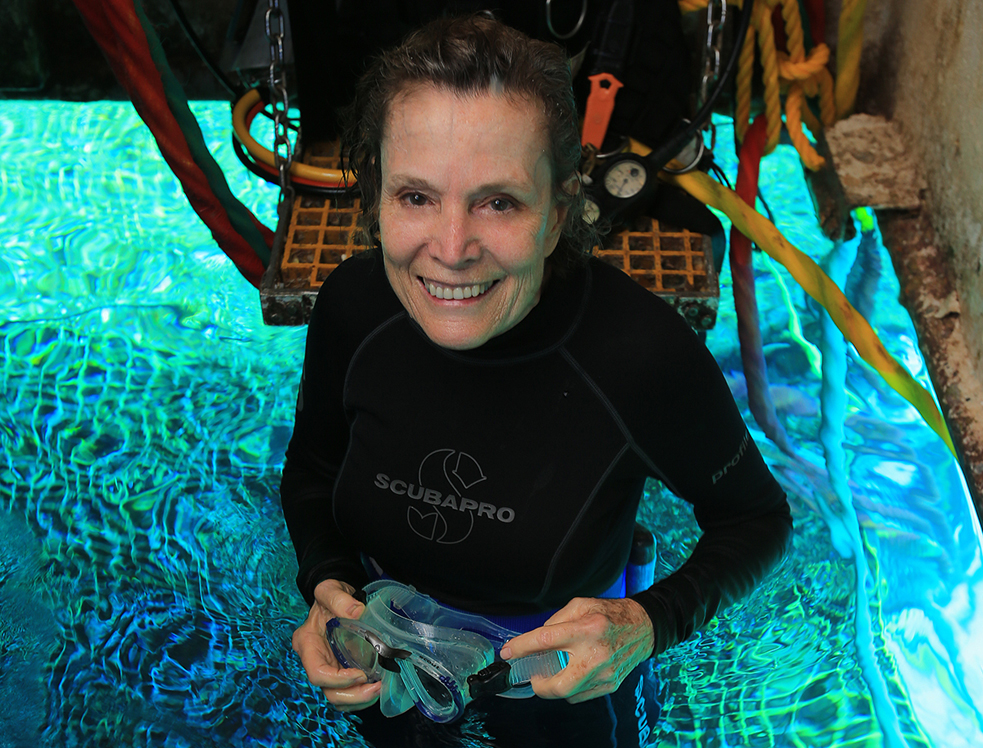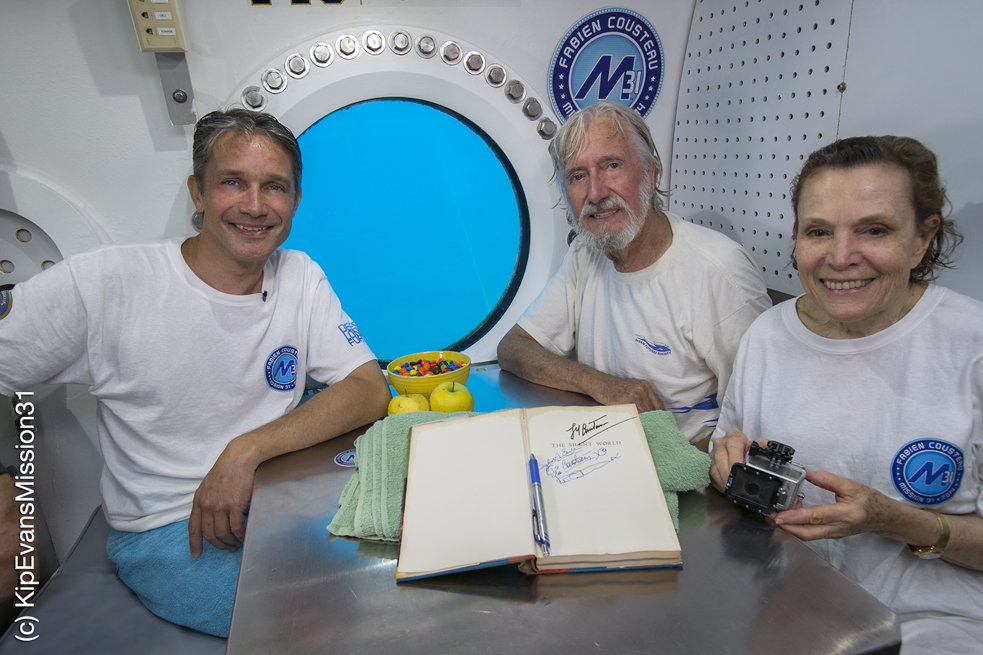
Sylvia Earle took a deep-sea dive to visit Fabien Cousteau (Jacques Cousteau’s grandson) aboard the Aquarius underwater marine lab. Photo: Kip Evans/Mission 31
Sylvia Earle is always on a mission. She launched the ocean conservation campaign Mission Blue in 2010 after winning the TED Prize, establishing protected marine “hope spots” around the world. And last weekend, Earle dove 63 feet beneath the ocean’s surface to visit Fabien Cousteau, the grandson of legendary underwater explorer Jacques Cousteau, on his Mission 31.
Earle, a seasoned aquanaut and a National Geographic Explorer-in-Residence, donned her wetsuit to dive to the Aquarius, the world’s only underwater marine lab. She made the trip alongside her longtime friend Jean-Michel Cousteau, Jacques Cousteau’s son and Fabien Cousteau’s father. The pair were excited to find out more about Fabien Cousteau’s Mission 31, a 31-day-long operation to study how climate change and pollution are harming ocean life. With the Aquarius stationed near Key Largo, Florida, for the entire month of June, Fabien Cousteau and his team are also documenting the effects of living underwater long-term—which can take its toll, especially when given the cramped quarters and days passing without any real sunlight.
More from the TED Prize Blog: The possibilities of a 53-foot truck, with a teaching kitchen on-board
The project was inspired by one of Jacques Cousteau’s ocean expeditions some 50 years ago, when he and a team of researchers lived for a record 30 days in an ocean lab known as Conshelf II at the bottom of the Red Sea, off the coast of Sudan. With Mission 31, Fabien Cousteau hopes to honor his grandfather’s legacy while beating his record by one day.
A typical Aquarius mission lasts about 10 days and, while naval missions have spent more time submerged, this will be the longest stay for a film crew underwater, and the longest anyone has inhabited the lab without interruption. The project also marks the first opportunity for fans to follow an underwater Cousteau expedition in real time. Thanks to Internet connectivity inside the Aquarius, Fabien Cousteau is able to post to Instagram, tweet and hold Skype classroom sessions. He is also streaming live video of the mission, inside and out.
Mission 31 is concerned with what humans are doing to the oceans—precisely the thing that keeps Earle up at night too. Over more than four decades, she has led 50 expeditions worldwide, clocking more than 6,000 hours underwater, earning the nickname “Her Deepness” in the process. She has seen firsthand what is happening to the oceans. “We have the power to protect the wild ocean in ways that will restore its health, and, in so doing, secure hope for humankind,” she says in her TED Talk. “Health to the ocean means health for us.”
Fabien Cousteau, of course, is a kindred sea spirit. “It is thanks to the health of our oceans in general that we exist,” he said. “Whatever we do to the oceans we do to ourselves.”

Fabien Cousteau, Jean-Michel Cousteau and Sylvia Earle aboard the Aquarius. Photo: Kip Evans/Mission 31
This post originally ran on the TED Prize Blog. Read more »
Watch Sylvia Earle’s TED Prize talk »
Comments (2)